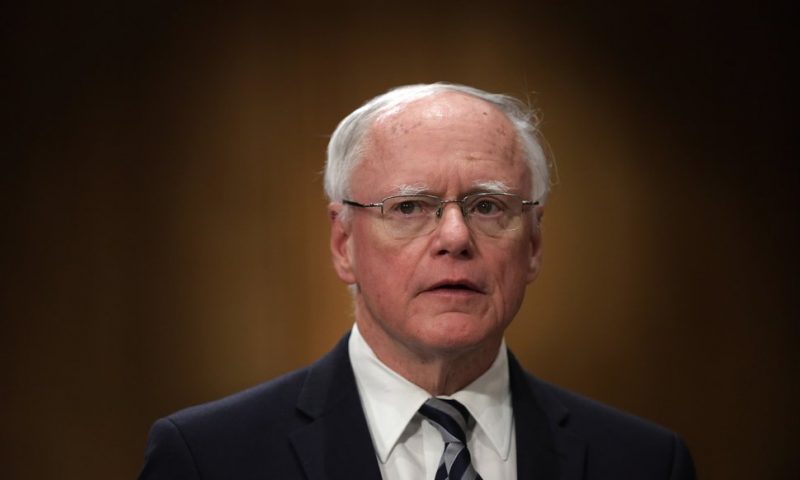Special Envoy for Syria Jim Jeffrey’s testimony to Congress contradicted the president’s assertion he scrutinized the effects of his surprise withdrawal before announcing it.
PRESIDENT DONALD TRUMP did not contact his top official to Syria before deciding unilaterally to pull U.S. forces out of that country, causing a collapse in a tentative security arrangement and spurring outrage from Capitol Hill at the prospect of abandoning key American allies.
“I personally was not consulted,” James Jeffrey, the U.S. special envoy to the conflict in Syria, told a congressional panel on Tuesday.[
The career diplomat’s revelation to the Senate Foreign Relations Committee contradicts Trump’s prior assertions that he consulted all of his top officers before making the decision earlier this month. The president’s claims came amid reporting that the departments of State and Defense did not have forewarning about the full withdrawal, which has sweeping implications for U.S. interests in the region and stability there.
Trump announced the full withdrawal after a phone call with Turkish President Recep Tayyip Erdogan, which immediately preceded Turkish forces’ invading Syria to attack Kurdish forces that have been a critical component of the U.S.-led coalition to fight the Islamic State group and restore some sense of stability in Syria. A cease-fire that Vice President Mike Pence helped broker last week – and which has been marred by reports of multiple violations by Turkish forces – expired as planned around the same time Jeffrey testified.
The U.S. withdrawal of forces was not connected to Turkey’s invasion, Jeffrey said.
The White House appears to have once again reversed its plans to withdraw fully from Syria, following Trump’s confirming on Monday that he would keep troops in another part of northeast Syria to protect valuable oil production infrastructure there.
Russia, whose only foreign military bases are in Syria, has sought to exploit the U.S. retreat to advance its own interests in the region and secure its position as a power broker there. President Vladimir Putin met with Erdogan in the Russian resort town of Sochi on Tuesday. The pair agreed to expand on the U.S. arrangement to disarm Kurdish forces and attempt to secure Syria’s border with Turkey.
The deal all but ensures the Syrian regime of Bashar Assad will remain in control, dooming those who have fought for democratic reforms since a civil war began in Syria in 2011.
Jeffrey on Tuesday also pushed back against other Trump administration officials’ assertions that the president could not have done anything to stop the incursion by Turkey, a NATO ally. The claims follow charges from critics that in their phone call Trump gave Erdogan a “green light” to begin his long-touted operation into Syria to attack the Kurds.
“It was not inevitable,” Jeffrey said.
He cited the multiple cease-fire agreements Turkey has struck with the U.S. as well as with Russia, a power vying for influence in Syria with which Turkey has increasingly cooperated in recent months. After a U.S.-led coalition dismantled the Islamic State group’s so-called caliphate across Syria and Iraq, American forces brokered a tentative agreement with Turkey in which it would patrol its border with Syria jointly and oversee the withdrawal of U.S.-allied Kurdish forces known as the Syrian Democratic Forces or SDF. Turkey considers elements of these troops as indistinct from domestic Kurdish terrorists.
“It made no sense to scramble – scramble – the entire situation in northeast Syria in order to pursue something they could not attain,” Jeffrey said, documenting the Turkish goal of controlling a swathe of territory 20 miles deep and almost 300 miles wide in another sovereign country.
Despite incentives the U.S. had offered in recent months, Jeffrey said, Turkey decided to “go for broke.”
Sen. Jim Risch, chairman of the committee, offered a bleak assessment of U.S. relations with Turkey during an interaction with Jeffrey.
What was once a strong ally in Nato, the Idaho Republican said, “has really gone in a bad direction and is now in a bad place.”

